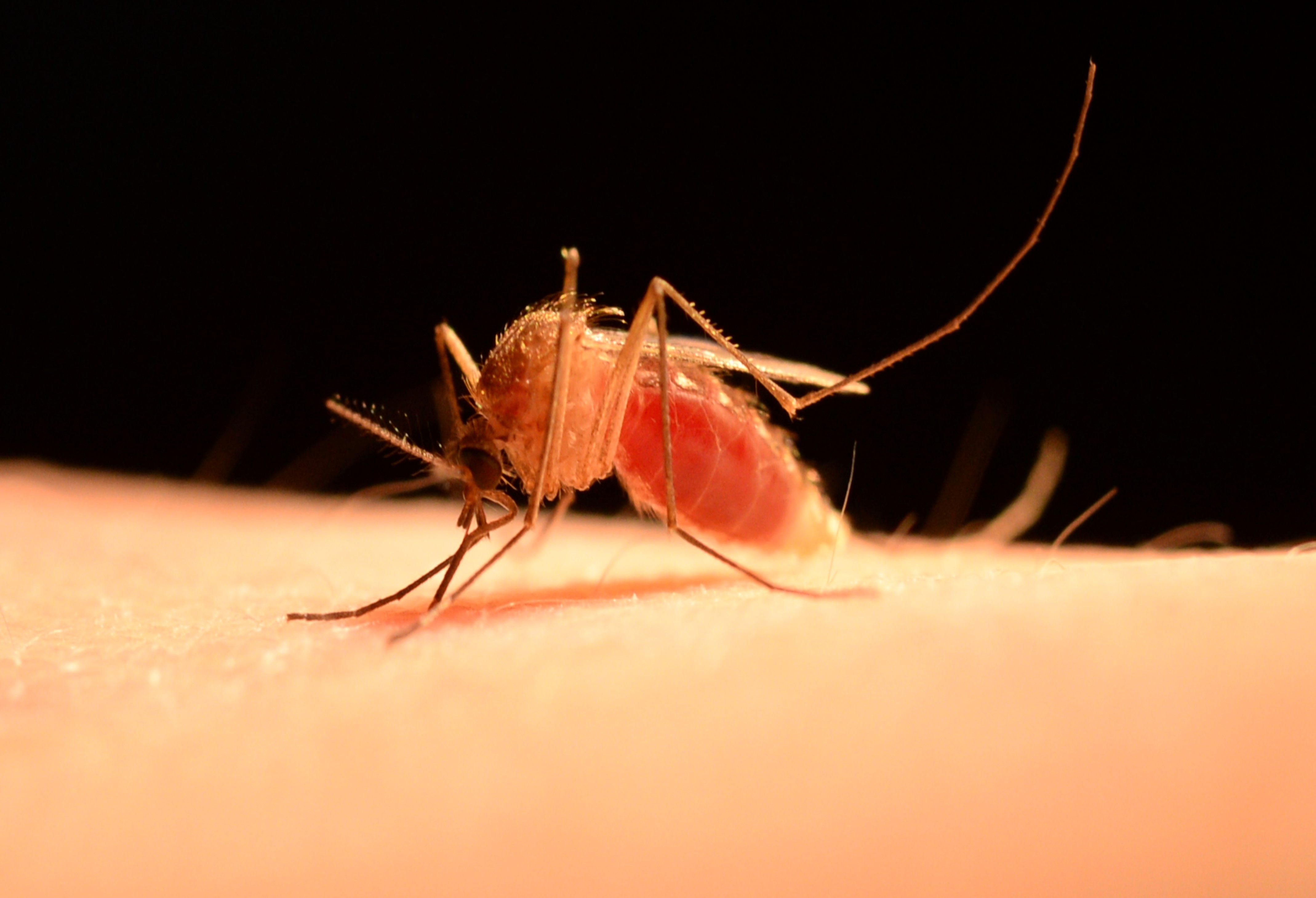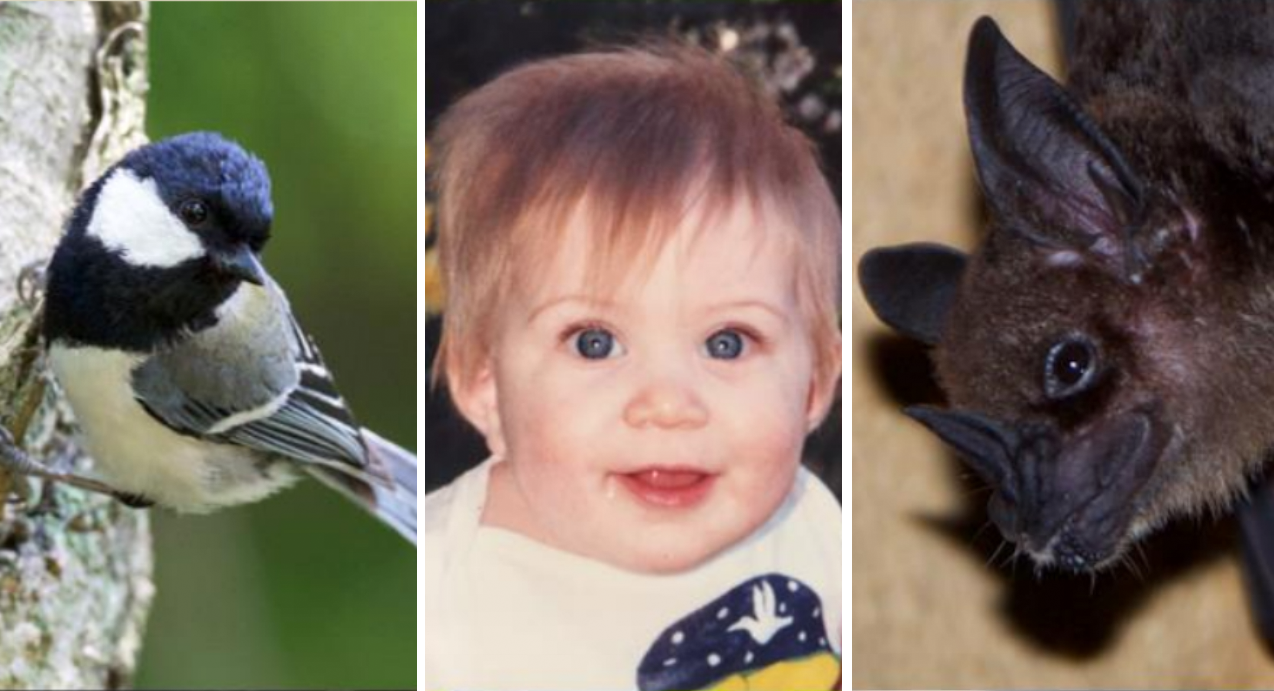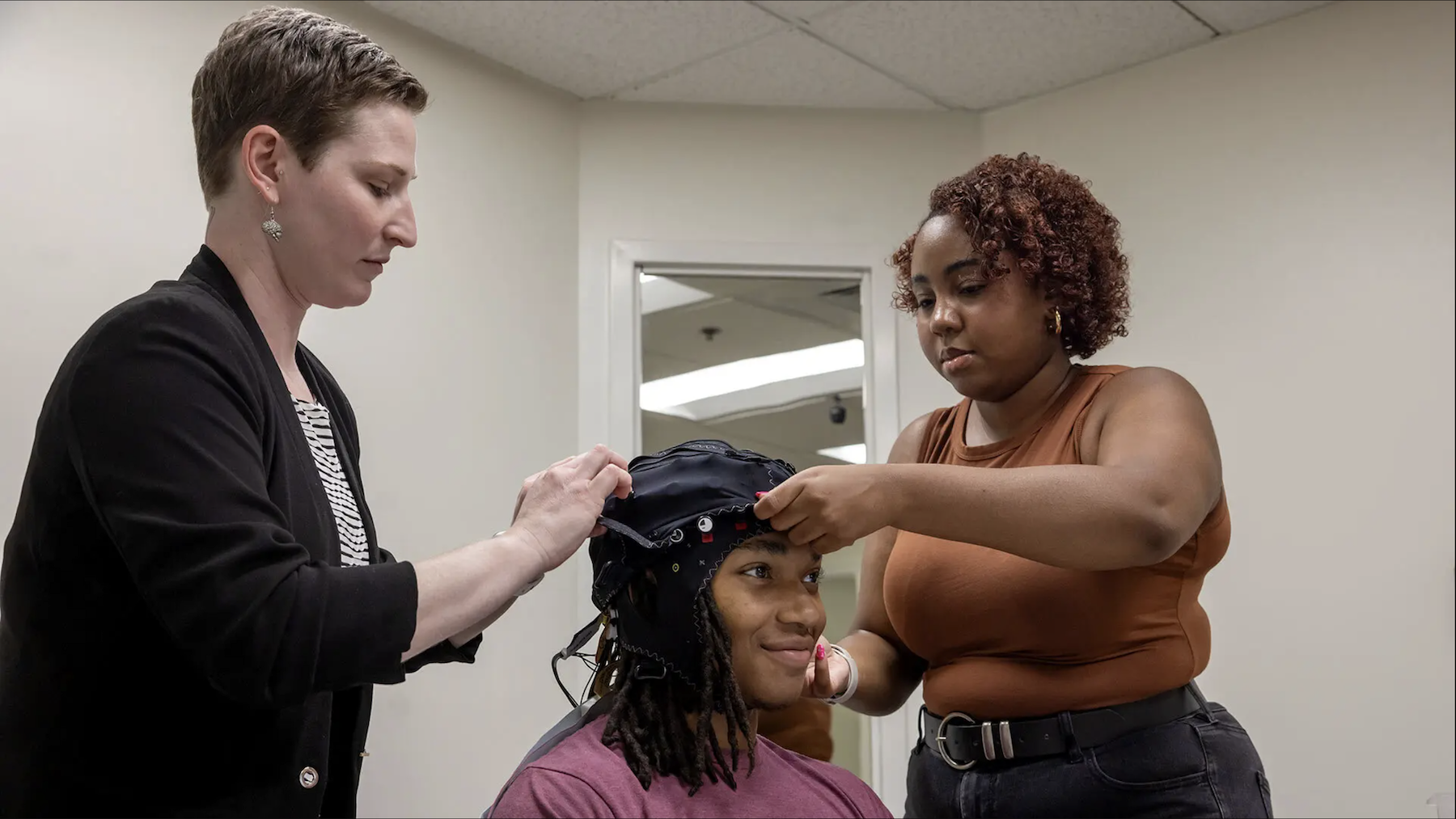News Story
NIH Awards $2M to UMD Entomologist Megan Fritz

A rare human-feeding form of the northern house mosquito. Image courtesy of Megan Fritz.
The National Institutes of Health (NIH) has awarded Megan Fritz, an assistant professor of entomology at the University of Maryland, a five-year, $2 million grant to study when and where mosquitoes are most likely to transmit West Nile virus to humans.
The grant, “Genetic Basis for Host Preference in Culex pipiens,“ seeks to establish that the transmission of typically avian diseases, such as West Nile, to humans is caused by genetic changes in the mosquitoes that transmit them. Although scientists currently suspect that interbreeding between two forms of the northern house mosquito, or Culex pipiens, contributes to the spread of West Nile to humans in North American metropolitan areas, Fritz’s work looks to isolate the specific genes responsible for the virus’s transmission and subsequently create a model that incorporates this genetic information to predict where outbreaks of West Nile may occur in the future. Fritz will work with co-principle investigators Carolyn McBride of Princeton University and Rebecca Smith of the University of Illinois on this project.
“The molecular underpinnings of human attraction, particularly in Culex mosquitoes, are still unclear,” Fritz notes. “Our work will not only add to a growing body of knowledge on the neurogenetics of host preference in mosquitoes, it will also apply that knowledge to address a specific public health problem: predicting where and when humans are at highest risk of exposure to West Nile virus here in North America.”
Culex pipiens can be found across most northern latitudes and adapts well to different environments. In the case of West Nile, the important adaptations relate to host selection, or what the mosquito chooses to feed on. Culex pipiens typically prefer avian hosts, but when bred with a rare mammal-preferring form of Culex pipiens, the offspring toggle between avian and mammalian feeding. As a result, this hybrid mosquito can acquire West Nile by feeding on birds and also be chemically attracted to mammalian populations, including humans.

Fritz’s interdisciplinary study brings together the fields of entomology, neurobiology and epidemiology to determine how the flow of genes between the two mosquito varieties impacts mosquito behavior and disease transmission. Her research first aims to isolate the genetic markers associated with mammal-seeking behavior in Culex pipiens. Then, by examining the genetic characteristics of mosquito populations alongside geographic information about past cases of West Nile and climatic data, Fritz plans to create a model that predicts where the virus is likely to spread to humans. By supplementing existing epidemiological models with empirical information about mosquito genetics, Fritz hopes to help reduce West Nile in metropolitan regions across the U.S. Ultimately, her work marks a major step toward determining the genetic variants that inform host selection broadly in mosquitoes.
Seed grant funding from UMD’s Brain and Behavior Initiative (BBI) supported the gathering of pilot data for this project. The seed grant for “Unraveling the neurogenetic architecture of human preference in mosquitoes” was awarded to Fritz, assistant professor of biology Quentin Gaudry, and professor of biology Carlos Machado. To date, BBI’s Seed Grant Program has generated $12.5 million in external awards from an investment of $1.3 million. BBI recently announced the latest projects to be awarded seed grants.
Published August 26, 2019









